JEDDAH: Hajj draws about 2 million people each year. However, this monumental event places a significant strain on the environment through waste, water and energy consumption, and carbon emissions.
That is why measures have been put in place to encourage pilgrims to minimize their waste, use resources judiciously, and reduce their overall carbon footprint while fulfilling their Hajj obligations.
Various government bodies are collaborating to manage solid waste, promote environmentally conscientious behaviors, and mitigate the adverse effects of litter on the environment.
In a statement posted on X, the National Waste Management Center said: “With integrated efforts to safeguard the environment of the holiest places on earth, MWAN inspection teams are conducting rounds to ensure safe waste management, facilitating the performance of Hajj rituals with ease and peace of mind.”
Its teams inspected 49 operational facilities in the waste management sector across Makkah and Madinah in May to ensure their compliance with waste management regulations.
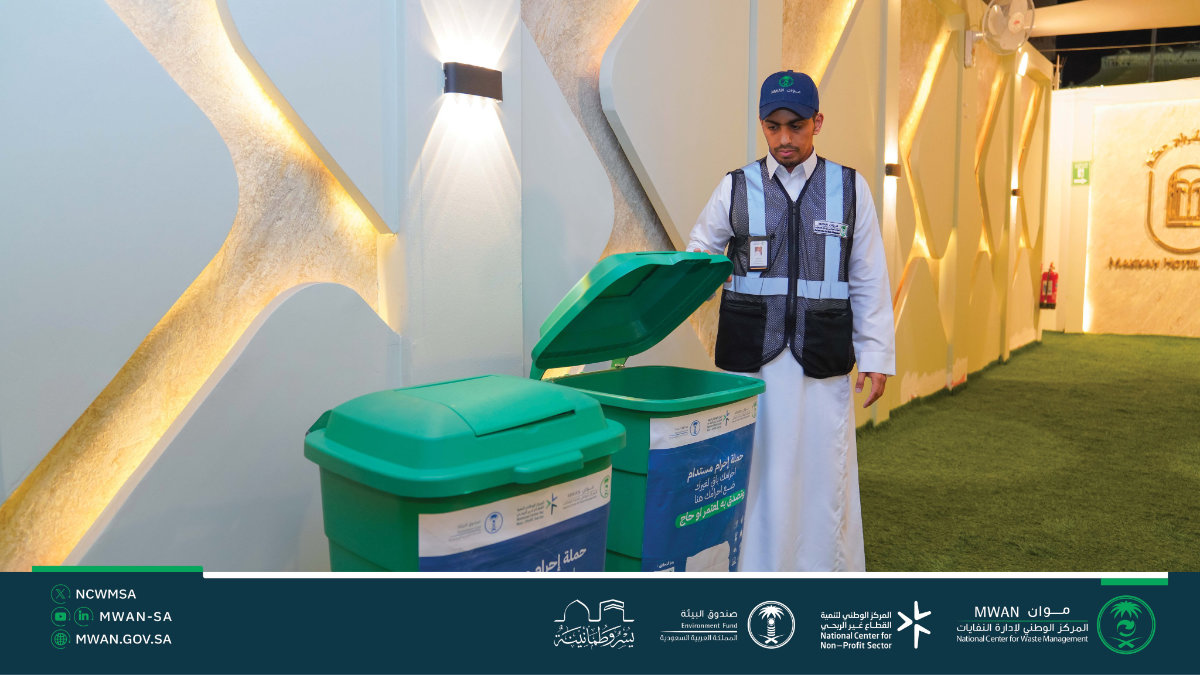
Teams from the Saudi National Waste Management Center conduct inspections regularly to ensure safe waste management. (X: @ncwmsa)
MWAN says that it aims to roll out several initiatives to serve pilgrims, optimize natural resource use, and promote public health and environmental sustainability.
The National Center for Environmental Compliance plays a crucial role in gathering data and monitoring air quality before, during and after the Hajj season.
“These figures are sent directly to the central monitoring station, where national experts analyze them and issue daily reports provided to the Hajj Committee,” Saad Al-Matrafi, the center’s spokesperson, told Arab News.
“Quick responses from field committees and appropriate decisions are made upon observing significant deviations to ensure the safety of the pilgrims.”
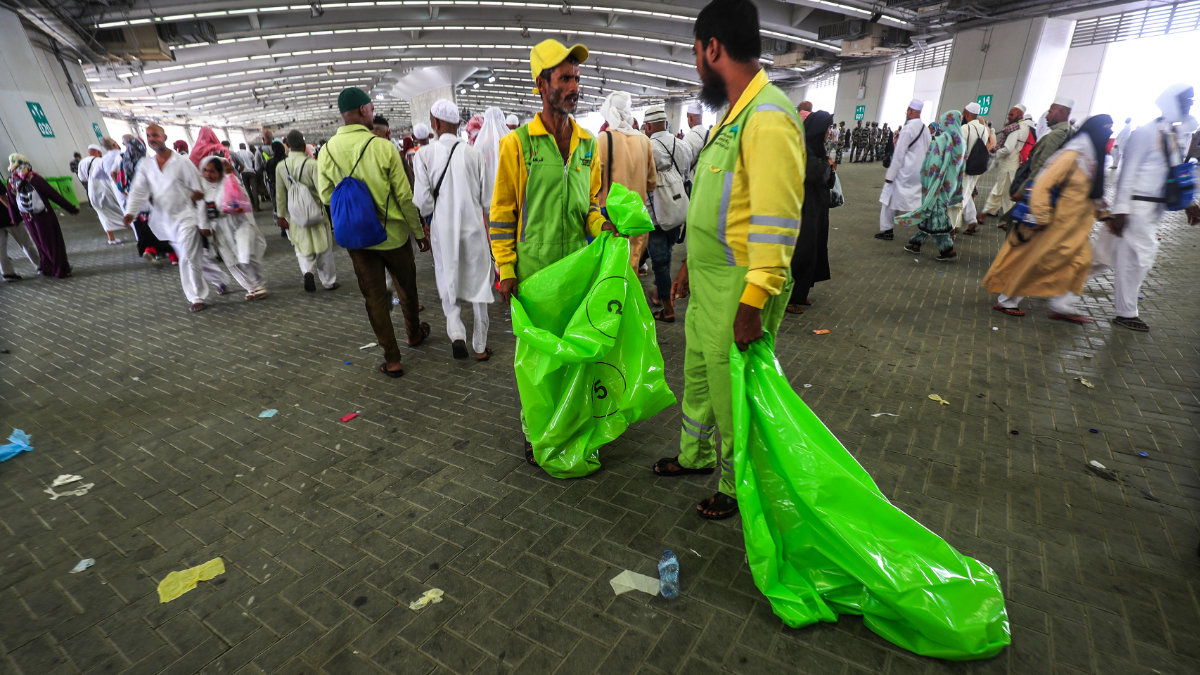
In the streets of Makkah province, thousands of cleaners are hard at work separating plastic waste from compost as more than two million Muslims wrap up their annual hajj pilgrimage. (AFP)
The center also conducts inspection rounds of sites and facilities to ensure compliance with environmental regulations and standards.
“The first phase of this year’s operational plan has been completed, which includes inspection rounds of sites and facilities in the health, municipal, industrial, agricultural, fuel stations, and roads used by pilgrims,” Mohammed Ammar Ameen, the head of the center’s Hajj Operations Room, told Arab News.
Ameen said that any facility found to be non-compliant during these visits was reported to the relevant authorities to ensure the quality of environmental conditions before the start of Hajj rituals.
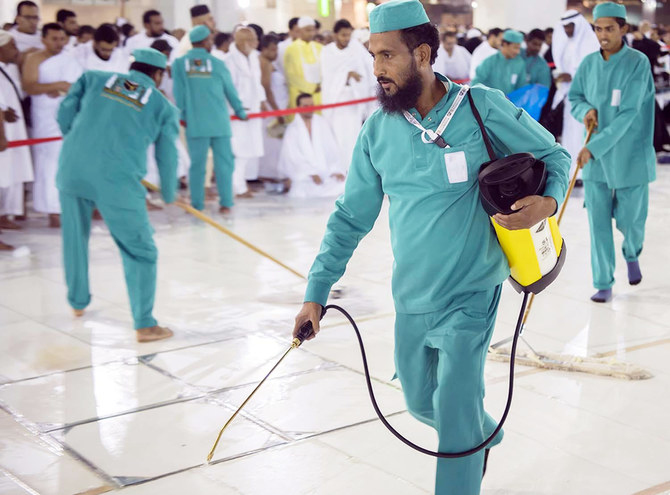
Maintaining the sacred ambiance: Sanitizing and perfuming the Grand Mosque ensures lasting memories of cleanliness and pleasant fragrances for all pilgrims. (SPA)
In the second phase, the center will intensify its field visits around Makkah and the holy sites, monitoring water, soil and air samples to ensure their safety.
“This year’s monitoring plan includes monitoring environmental violations and responding to environmental emergencies in the holy site camps,” Ameen said.
“The center’s team of inspectors and environmental specialists work around the clock to ensure the comfort of guests through continuous environmental monitoring and instant detection of any violations in environmental standards and noise pollution.”
DID YOUKNOW?
• The electric Holy Sites Train produces zero carbon emissions, preserving the environment and pilgrims’ health.
• The National Center for Waste Management is raising awareness about environmentally friendly behaviors.
• The National Center for Environmental Compliance established 20 air quality monitoring stations in Makkah and Madinah.
• The National Center for Wildlife Development works to ensure baboon-free zones at the holy sites.
Clean water for drinking and for carrying out ablutions is provided at dispensing stations around the holy sites and along connecting routes to keep pilgrims and performers of Umrah cool and hydrated.
The Ministry of Environment, Water and Agriculture has initiated 10 projects to enhance water infrastructure, with 2,000 employees dedicated to providing services to pilgrims.
Abdulrahman Al-Fadley, minister of environment, water and agriculture, said that there was an average daily pumping volume of more than 750,000 cubic meters per day to Makkah and the holy sites, rising to more than one million cubic meters per day on the day of Arafa and the days of Eid Al-Adha.
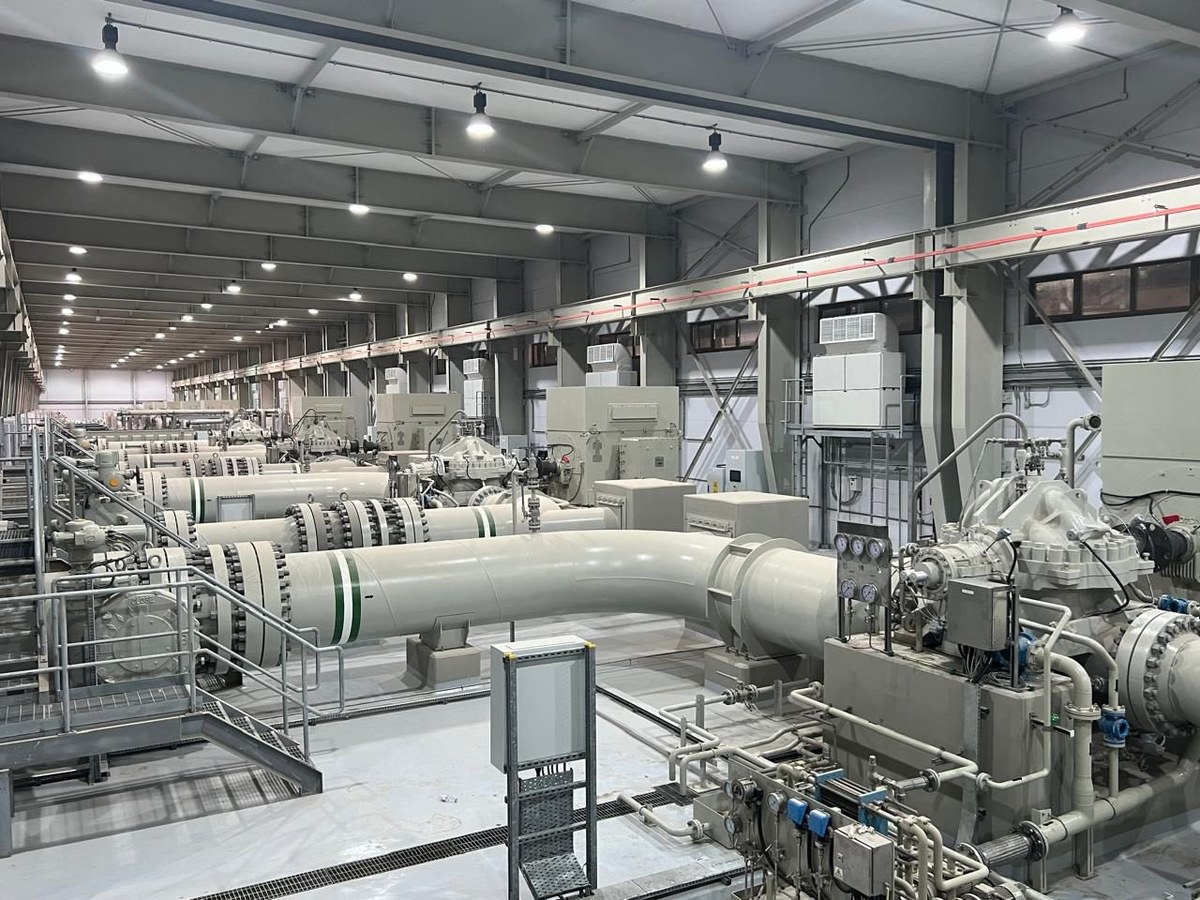
During the Hajj season, 750,000 cubic meters of water are pumped in Makkah every day. (SPA)
Water storage has reached 3.2 million cubic meters. There are also about 4,100 daily laboratory tests carried out to ensure water quality.
Meanwhile, the National Center of Meteorology is monitoring weather conditions in the event of extreme heat events.
Al-Matrafi of the National Center for Environmental Compliance said that he and other departments had devised a set of environmental performance metrics to help encourage improvements.
“Through strategic analysis of environmental performance and challenges during the Hajj seasons, we aim to pinpoint areas for improvement and innovation,” he said.
“This approach enables us to develop sustainable environmental standards and introduce forward-looking initiatives, including implementing smart cities, adopting alternative energy sources, promoting recycling, and integrating environmentally friendly transportation systems.”
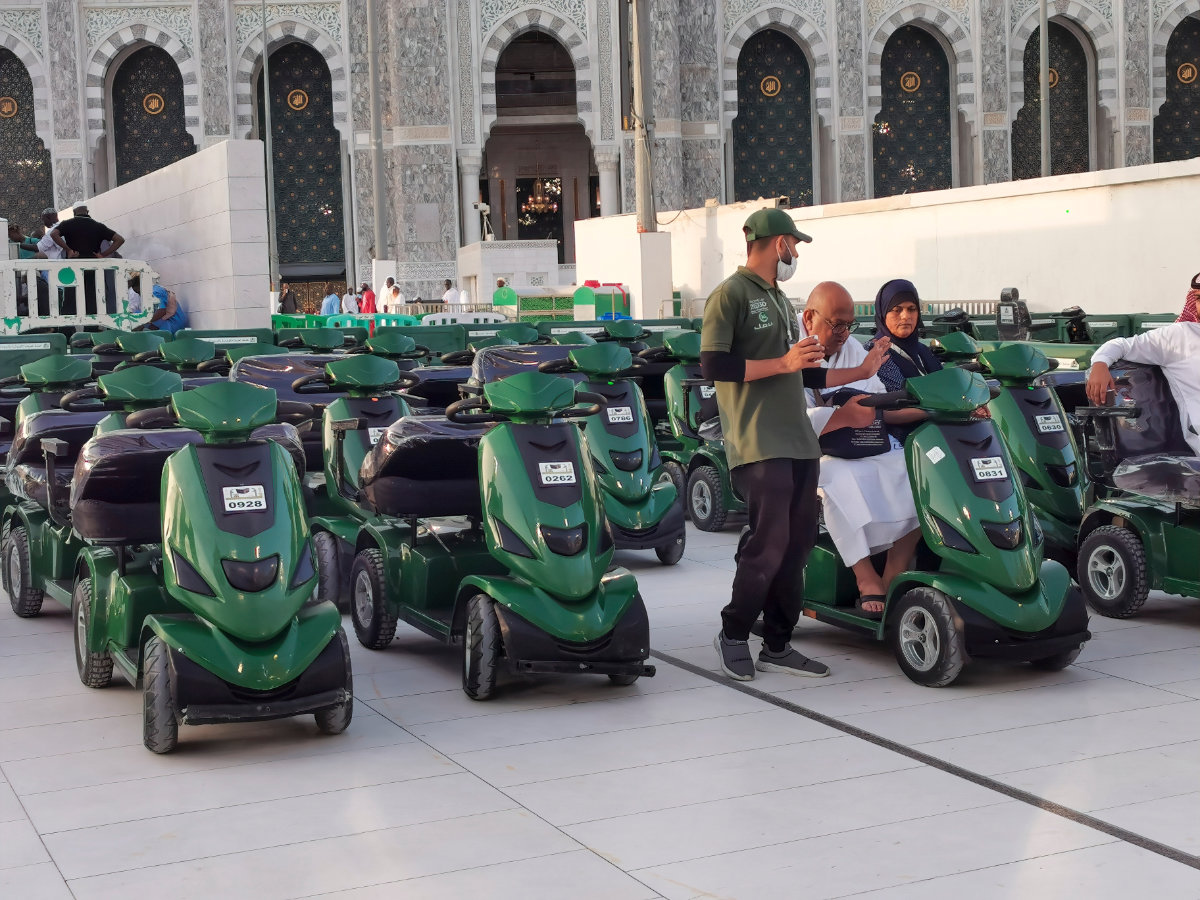
The Grand Mosque in Makkah has a fleet of rides running on electric battery. (Shutterstock)
These include electric trains, a fleet of electric buses, a rollout of brand new e-scooters, and even a pioneering, all-electric, self-driving aerial taxi service — the world’s first to be licensed by a civil aviation authority.
Despite its many environmental challenges, Hajj presents an opportunity for pilgrims to embrace sustainable practices — be that choosing to travel by electric vehicle, to reuse garments rather than buy new clothing, or simply by carrying a reusable bottle.
By adopting these sustainable practices, pilgrims can contribute to a greener Hajj journey and minimize their environmental impact.




































